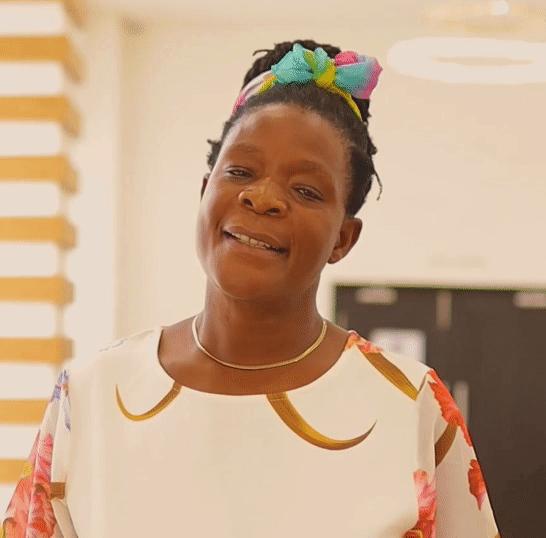WHY BPS?

TRANSFORMING BLANTYRE’S HIV RESPONSE
The Blantyre Prevention Strategy (BPS) is a model of strengthening district-level health systems for locally led, sustainable HIV prevention responses. BPS arose from a shared understanding that Malawi needed a new approach to address its HIV epidemic, particularly in its Southern Region. While Malawi was working toward the 2020 global 90-90-90 targets, and new infections had been dropping steadily over several years, more than 20,000 people were newly infected in 2019. Southern Region, for which Blantyre, a rapidly urbanizing district of more than 1.5 million people, is its hub.
In 2015-16, the HIV prevalence rate in Blantyre was 17.7% — highest in Malawi and nearly double the national average at the time — according to the Malawi Population-based HIV Impact Assessment (MPHIA) 2015-16.
“The greatest challenge that we faced was an uncoordinated response among stakeholders in the HIV response.”
Dr. Gift Kawalazira, Director of Health and Social Services, Blantyre District
Prior to BPS, HIV prevention efforts in Blantyre were fragmented and uncoordinated, complicated by the complexity of HIV prevention service delivery, which includes multiple interventions that need to be targeted and delivered to different risk groups, ages, and demographics. Blantyre struggled with these and other issues — including weak data systems for HIV prevention and insufficient local data use, poor risk assessments and targeting, and inconsistent community demand. In the absence of a systemic approach, there was fragmentation across donor-funded partners and lack of communication between organizations working on HIV prevention in the district. Communities also were rarely engaged in program planning and implementation.
The Government of Malawi’s National AIDS Commission (NAC) led a consultative process to co-design a solution that unified numerous disparate efforts and elevated district leadership. Key to this inclusive process was the emphasis on local insights and experiences in shaping the strategy through engagement with various stakeholders, including healthcare and public health professionals, community leaders, and representatives from non-governmental and academic organizations.
With active participation from the Ministry of Health’s Directorate of HIV/AIDS, STI & Viral Hepatitis (DHA), and the Blantyre’s City and District Council DHSSs, the consultative approach included:
-
Listening sessions with Blantyre’s district and city health management teams
-
Private sector and youth-led group consultation led by district and city leaders
-
Community-based organizations
-
Input from national government representatives
-
Engagement with donor and multilateral stakeholders — including UNAIDS, Global Fund, PEPFAR, and Clinton Health Access Initiative (CHAI), and implementing partners — to establish a deep understanding of the Blantyre health system’s unique challenges and gaps
“Before BPS, as a district, we were doing response activities focusing at facility level. We were not involving the communities … also not using data; we were just doing it for the sake of implementing activities. And there was no coordination with other partners; everyone was doing activities on their own, according to their needs. We did not even involve the community let alone focus much on active surveillance of HIV infections. We were doing passive surveillance.”
Loncy Sajeni
Principal District Environmental Health Officer, Blantyre District

"[BPS] brought everyone together on the table to start looking at the vision we wanted to see for Blantyre as a district…I would say that we are collaborating a little bit more, we are working better, we are coordinating, and we are networking better than we used to do before."
Grace Kumwenda, Former Chief of Party for Pakachere Institute for Health Development Communication

BPS was designed to leverage the trend towards health systems decentralization and reflect the best thinking from public health leaders in Malawi and around the world. BPS’s innovative approach has improved HIV service delivery in Blantyre by creating a more unified health system that links political and community leaders, public and private health clinics, community-level entities, and others, under city and district leadership.
To learn more about the formative work, see "Kawalazira G, Kamgwira Y, Allinder SM, et al. A health systems approach to more effective decentralised HIV prevention: development of Malawi’s Blantyre Prevention Strategy." BMJ Glob Health 2025;10:e016880. doi:10.1136/bmjgh-2024-016880.
In 2024, Blantyre District was named District of the Year for Health and Dr. Gift Kawalazira was named District Director of Health and Social Services (DHSS) of the Year, reflecting the impact of BPS-supported capacitation on the Blantyre health system.
In early 2025, the Africa Population and Health Research Center (APHRC) released the report of its external evaluation of BPS. It found that BPS:
-
"Improved district leadership, [which contributed] to better coordination and delivery of HIV prevention programming."
-
"Community-oriented platforms facilitated community health communication."
-
Launching the PrEPUP! quality improvement (QI) collaborative "created a platform to strengthen QI at the district and facility levels."
-
The BPS-supported HIV data pipeline and PALMS dashboards "improved data access and use by consolidating information from multiple sources, simplifying visualization and decision-making."
-
"The onset of BPS coincided with a shift in the HIV testing and counseling trend, changing from a downward decline to a steady rise, with an average of around 533 individuals tested for HIV each month."
